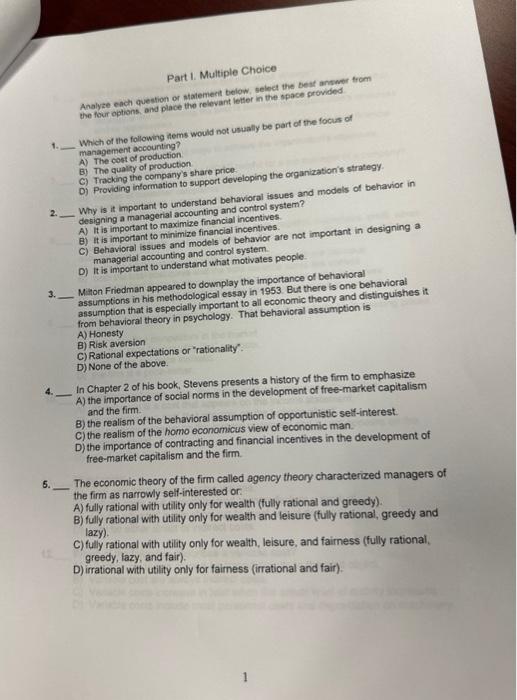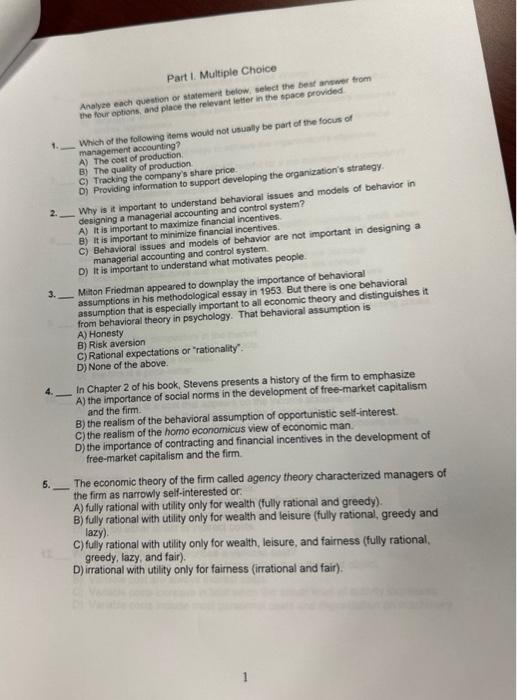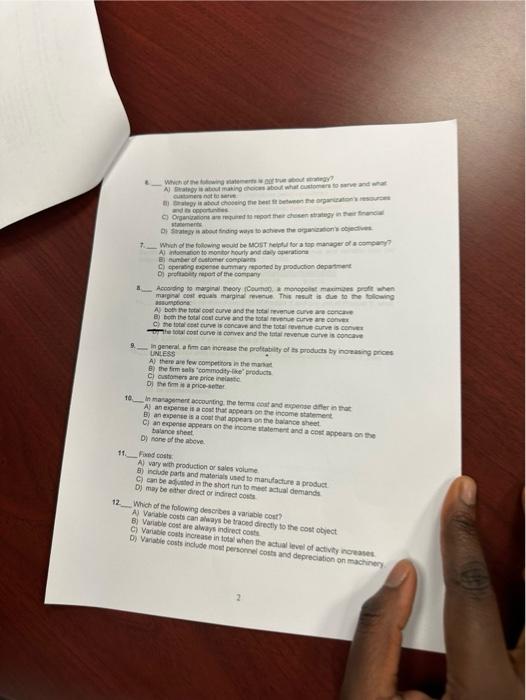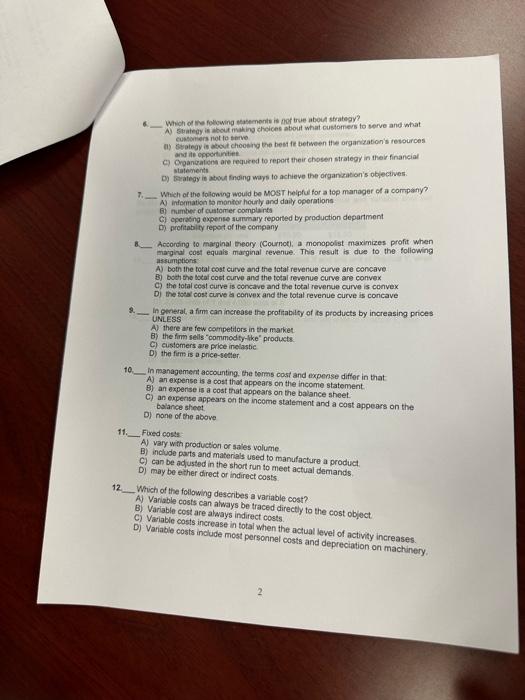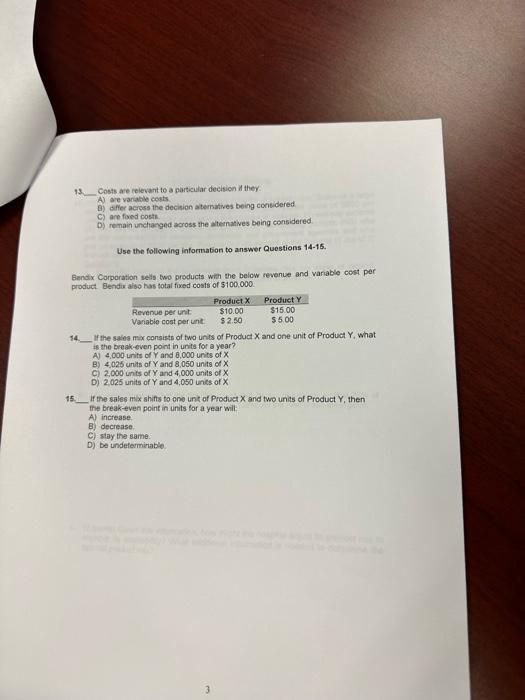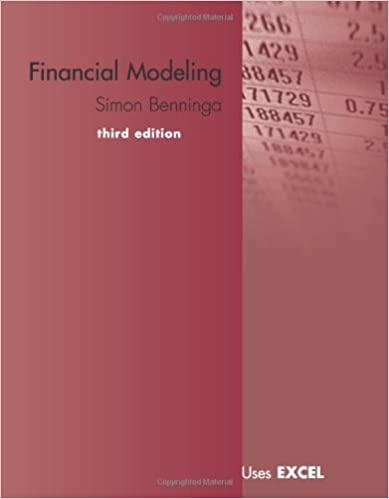e and to opowturitis: itanimertse 7. astumploce: B) been the total cont eurve and the total fevphue cirve are cohner C. the toba ceat cune is concive and the total revenut eurve is conien iniffes: A) there are fow coupetions in the mase C. nathoters are frice enelatite D) the fimm in a price-ticter A) an eipherse is a cost that appoan on the income stabement B) an exponse is a cout that appoars on the tolance sheet bulance sheret O) none of the above. 14. Fund coist A) way with proouction or sales volustie D) moy be tither divect or indirece conta. 12 Which of the following describes a variable cout? A) Varable coste can ahays be trabod directly to the coet obyect B. Weisble cont are always indicect coste. D) Variatle costs include moes personnel cost and depreciation on machinem Part 1. Multiple Choice Analyke each question or statemect below, select the best ansuer from 1. Which of the following thems would not usually be part of the focus of management aocounting? A) The cost of production B) The qualify of production C) Trocking the company's share price- D) Providing information to support developing the organization's strategy. 2. Why is it important to understand behavioral issues and models of behavior in Why is it important to understand beharviorail issues and A) It is important to maximize financial incentives. B) It is important to minimize financial incentives. B) it is important to minimize financial incentives. managerial accounting and control system. D) It is important to understand what motivates people. 3. Mitton Friedman appeared to downplay the importance of behavioral assumptions in his methodological essay in 1953 . But there is one behavioral assumption that is especially important to all economic theory and distinguishes it from behavioral theory in psychology. That behavioral assumption is A) Honesty B) Risk aversion C) Rational expectations or "rationality". D) None of the above. 4. In Chapter 2 of his book, Stevens presents a history of the firm to emphasize A) the importance of social norms in the development of free-market capitalism and the firm. B) the realism of the behavioral assumption of opportunistic self-interest. C) the realism of the homo economicus view of economic man. D) the importance of contracting and financial incentives in the development of free-market capitalism and the firm. 5. The economic theory of the firm called agency theory characterized managers of the firm as narrowly seli-interested or. A) fully rational with utility only for wealth (fully rational and greedy). B) fully rational with utility only for wealth and leisure (fully rational, greedy and lazy). C) fully rational with utility only for wealth, leisure, and faimess (fully rational, greedy, lazy, and fair). D) irrational with utility only for faimess (irrational and fair). 6. Which of the following sevemente is nof true about strategy? A) Stratedy is about making cheices about what customers to serve and what cusconcers not to serve a) Strategy is about chooeng be best fe between the organization's resources. asd in epporturite. c) Croancateon are requeed to report their chosen strategy in their financial. statement: D) Brategy is about Inding ways to achieve the organization's objectives. 7. Which of the folowing would be MOST helphie for a top manager of a cormpany? A) infermation to monitor hourly and daily operations 6) number of cuatomer complaints C) coperabing expense survmary reported by production department D) profitabity repot of the company 8. Actonding to maginal theory (Cournot), a monopolist maximizes profit when marginal cost equals marginal revente. This result is due to the following assumptions: A) both the fotal cost curve and the fotal revenue curve are concave fi) boch the sotaf cost curve and the total revenue curve are convex C) the fotal cest curve is concave and the total revenue curve is convex D) the toes cost curve a convex and the total revenue curve is concave 2. in generat, a fim can increase the profitabiloy of is products by increasing prices UNLESS A) there are few competitors in the market. b) the fim sells "commodity- tike" products. C) Customers are price inelastic D) the firm is a price-secter. 10. In management aocounting, the terms cost and expense differ in that A) an expense is a cost that appears on the income statement B) an experise is a cost that appears on the balance sheet: C) an expernse appears on the income statement and a cost appears on the bolance sheet. D) none of the above 11. Fured costs: A) vary with production or sales volume B) include parts and materials used to manufacture a product. C) can be adusted in the short run to meet actual demands. D) may be ether direct or indirect costs. 12. Which of the following describes a variable cost? A) Variable costs can always be traced directly to the cost object B) Variable cost are always indirect costs. C) Variable costs increase in total when the actual level of activity increases. D) Variable costs include most personnel costs and depreciation on machinery. 13. Costs are relevant to a particular decision a they. A) are variable ceats. B) differ across the decision atematives being conicidered c) are foed costi. D) remain unchanged across the atematives being considered. Use the following informabion to answer Questions 14-15. Bandix Corporation sels two products with the below revenue and variable cost per product. Bendix albo has total fixed costs of $100,000. 14. If the sales max consists of two units of Product X and one unit of Product Y, what is the break-even point in units for a year? A) 4,000 units of Y and 8,000 units of X B) 4,025 units of Y and 8,050 units of X C) 2,000 units of Y and 4,000 units of X D) 2,025 units of Y and 4,050 unes of X 15 If the sales mix shifs to ono unit of Product X and two units of Product Y, then the break-even point in units for a year wil: A) increase. B) decrease. C) stay the same. D) be undeferminable. Part 1. Multiple Choice Analyze each question or statemert below, select the best ansiner from 1. Which of the following thems would not usually be part of the focus of management aocounting? A) The cost of production B) The qualify of production C) Trocking the company's share price. D) Providing information to support developing the organization's strategy 2. Why is it important to understand behmioral issues and models of behavior in Why is it important 10 uncerstand behiviorai issuet aro a managerial accounting and control system? A) it is important to maximize financial incentives. B) It is important to minimize financial incentives. B) It is important to minimize financial incentives. managerial accounting and control system. D) It is important to understand what motivates people- 3. Miton Friedman appeared to downplay the importance of behavioral assumptions in his methodological essay in 1953 . But there is one behaviora! assumption that is especially important to all economic theory and distinguishes it from behavioral theory in psychology. That behavioral assumption is A) Honesty B) Risk aversion C) Rational expectations or "rationality". D) None of the above. 4. In Chapter 2 of his book, Stevens presents a history of the firm to emphasize A) the importance of social norms in the development of free-market capitalism and the firm. B) the realism of the behavioral assumption of opporturistic self-interest. C) the realism of the homo economicus view of economic man. D) the importance of contracting and financial incentives in the development of free-market capitalism and the firm. 5. The economic theory of the firm called agency theory characterized managers of the firm as narrowly seif-interested or. A) fully rational with utility only for wealth (fully rational and greedy). B) fully rational with utility only for weakth and leisure (fully rational, greedy and lazy). C) fully rational with utility only for wealth, leisure, and fairness (fully rational, greedy, lazy, and fair). D) irrational with utility only for faimess (irrational and fair)
